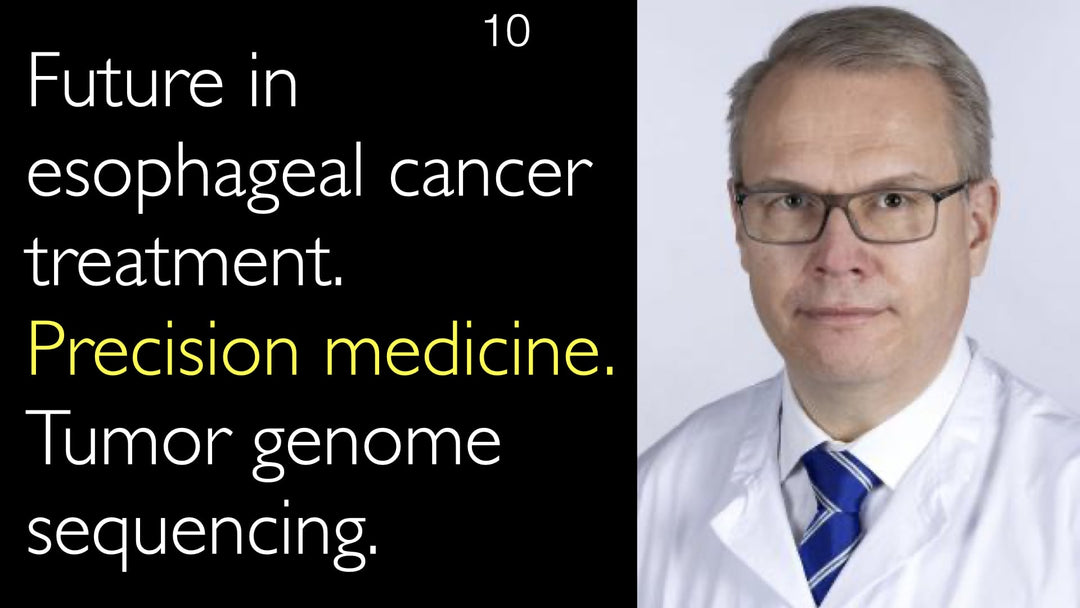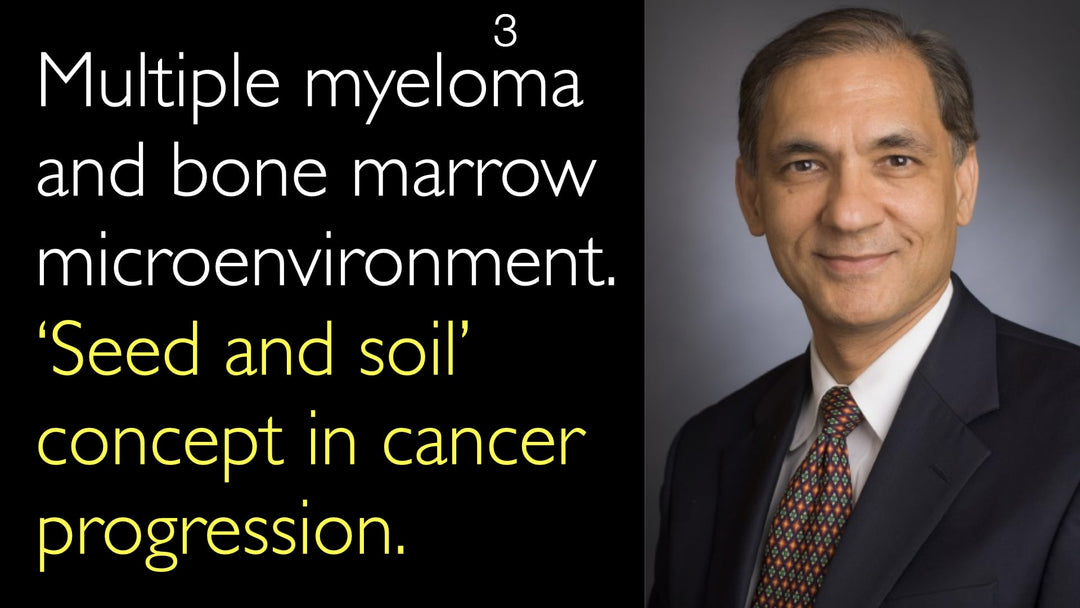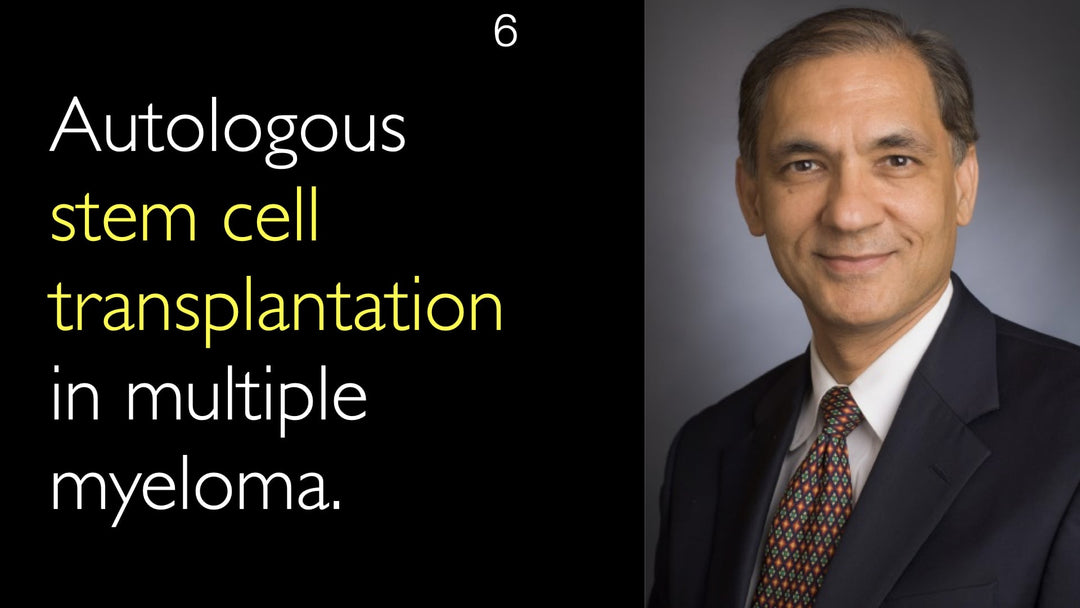直腸癌手術の権威、トルビョルン・ホルム医師(医学博士)は、治療の将来は個別化医療、予後判定のための分子マーカー、そして高症例数を扱う専門センターへの集約にかかっていると述べます。また、低侵襲技術の重要性が高まる中で、最適な多職種連携医療を求める意識の高い患者の役割についても詳しく解説しています。
直腸がん治療の未来:個別化医療と低侵襲手術
セクションへ移動
個別化医療が未来を拓く
Torbjorn Holm医学博士によれば、直腸がん治療の中心的なトレンドは、個別化医療への移行です。これは画一的なアプローチではなく、一人ひとりの患者に合わせて細かく調整された治療計画を意味します。この進化は、診断技術の向上と腫瘍生物学への理解の深化によって推進されています。
予後予測のための分子マーカー
重要な進歩の一つが、腫瘍生検による分子マーカーの日常的な活用です。Torbjorn Holm医学博士は、腫瘍の遺伝子パターンを分析することで、医師が患者の予後を高精度で予測できるようになると説明します。この精密医療アプローチにより、転移リスクが極めて低い患者と高い患者を識別でき、治療を最適化できます。その結果、放射線療法や化学療法を安全に回避できる患者もいれば、より強力な治療レジメンを受ける患者も出てきます。
低侵襲手術の台頭
Torbjorn Holm医学博士は、直腸がんに対する低侵襲手術がますます一般的になっていると強調します。腹腔鏡手術やロボット支援手術などの技術が急速に普及しており、特に経肛門的全直腸間膜切除術(taTME)と呼ばれる新しい手法が広がりつつあります。これらのアプローチは、疼痛の軽減、入院期間の短縮、回復の迅速化など、患者に多くの利益をもたらします。
多職種チームの重要性
Anton Titov医学博士とHolm博士は、すべての直腸がん患者を多職種チーム(MDT)会議で検討することが現代医療において不可欠であると合意しています。外科医、腫瘍内科医、放射線科医、病理医からなるこのチームは、術前および術後に症例を検討し、化学療法などの追加治療の必要性を集団的に判断し、適切なリスク層別化に基づいた経過観察計画を立てます。
高手術量施設の意義
現代の直腸がん治療の複雑さから、Torbjorn Holm医学博士は、治療が高手術量の病院に集中されるべきだと強調します。これらの施設の外科医は複雑な手術を頻繁に行っており、これは患者の転帰の改善と合併症率の低下に直接結びついています。この集中化により、患者は高度な教育を受け経験豊富な医療チームによる治療を受けられます。
変わりゆく患者の役割
Holm博士によれば、重要な変化の一つは、患者が医療の情報通の消費者へと移行している点です。患者はより知識を深め、インターネットや公開がん登録を利用して自身の診断を調べ、優れた実績を持つ病院を探すようになっています。Holm博士は、患者が高品質の治療を要求し、誰に治療を受けるかを自ら決定する力を持つべきだと考えています。これは、医師がその選択を行ってきた従来のモデルからの大きな変化です。
最適な直腸がん治療を求めて
Anton Titov医学博士は、直腸がんのような複雑な診断において、セカンドオピニオンの取得が重要であると頻繁に述べています。このプロセスは診断と治療計画を確認し、患者が最適な道を進んでいることを保証します。Holm博士の洞察は、最良の直腸がん治療センターと外科医を見つけることが、先進的で個別化された治療を通じて最善の転帰を達成するためにすべての患者が取るべき積極的な一歩であることを強調しています。
完全な対談記録
Anton Titov医学博士: Holm博士、あなたは40年以上の経験で非常に困難な状況の直腸がん患者を治療されてきました。直腸がん治療において国際的に権威ある地位を確立されています。
Anton Titov医学博士: 直腸がん治療の未来はどうなるでしょうか?患者は今後数年間でどのような進歩を期待できるでしょうか?
Torbjorn Holm医学博士: 良いながらも難しい質問です。私たちは個別化医療に焦点が当てられる時代に生きていると思います。つまり、直腸がん治療は個々の患者に合わせて調整されなければなりません。
患者はがん治療についてますます意識が高まっています。インターネットを利用し、多くの情報を読み、多くの国にはがん患者登録制度や病院の品質評価もあります。したがって、多くの患者は、優れた技術で高く評価されている病院で治療を求めるでしょう。これが直腸がん治療の重要な未来のトレンドの一つです。患者は今後、さらに高品質の治療を要求するようになるでしょう。
かつては患者が地元の病院に行き、医師を信頼するのが一般的でしたが、未来では患者ははるかに意識が高く、教育を受けるようになります。最高の結果を得るために病院を選ぶだろうと確信しています。
また、個々の患者に対して、近い将来分子マーカーが利用可能になります。腫瘍マーカーは直腸がんの予後を高精度で予測するため、生検から患者の予後を予測できるようになります。腫瘍の遺伝子パターンを調べることで、治療をはるかに適切に調整できます。一部の患者は放射線療法や化学療法の恩恵を受けないかもしれません。転移リスクが極めて低い患者もいれば、高い患者もいます。将来、複数の分子マーカーによってこれをより正確に予測できるようになります。
また、直腸がん治療のための低侵襲手術は、今日よりもはるかに一般的になるでしょう。すでに低侵襲手術は急速に増加しており、新しいロボット支援手術により、より多くの患者が低侵襲手術を受けられるようになっています。最近導入された経肛門的全直腸間膜切除術も急速に普及しています。
一方で、直腸がん治療はますます複雑化しており、多くの選択肢と可能性があります。個々の患者ごとに治療を調整する必要があるため、高度な教育を受けた医療者が対応しなければなりません。これが、治療を高手術量の病院に集中させる必要性を意味します。そこでは医師が直腸がんを適切に治療する方法を知っています。
これが直腸がん治療の未来です:高手術量の外科部門、十分な教育を受けた患者、分子評価に基づく個別化治療、そしてより多くの低侵襲手術。これが未来のトレンドの要約です。
Anton Titov医学博士: 明らかにこれらはがん治療で繰り返し現れるテーマです。多職種治療チームと高手術量の外科的経験が必要です。
Anton Titov医学博士: 最良の治療結果を得るためには、外科医が特定の手術において豊富な経験を持たなければなりません。これらは様々な医学分野で共通するテーマです。
Torbjorn Holm医学博士: 今日、術前および術後に多職種チーム会議で患者を検討しない限り、直腸がん患者を治療することは許されるべきではありません。そこで決定が下されます:患者はさらなる治療が必要か?どのように経過観察すべきか?
明らかに、再発リスクが極めて低い患者もいれば、高い患者もいます。リスクに応じて経過観察の必要性や方法が異なります。これらすべてのことが、将来はるかに要求されるようになるでしょう。だからこそ多職種治療チームと高手術量の外科ユニットが必要なのです。
Anton Titov医学博士: 正しい治療を求める患者の自発性と積極性もあります。患者は最高のがん外科医にかかる価値を理解すべきです。その外科医は正しい手術を行う最も豊富な経験を持たなければなりません。
Torbjorn Holm医学博士: しかし、直腸がんの最良の治療には障壁があります。少なくともスウェーデンの医療制度では自由市場が存在しないため、患者は行きたい病院に自由に行くことができません。政府が各病院の年間手術数を決定するため、これが問題です。しかし、願わくば患者の要求が将来これを解決するでしょう。患者が病院を選び、政府がその費用を負担するようになれば、人気のある病院は業務量を増やし、そうでない病院は閉鎖せざるを得なくなるかもしれません。それが未来であることを願います。治療の利用可能性は患者のニーズに合わせて調整されなければなりません。
誰が患者を治療すべきかを決定するのは患者であるべきです。これまでのように、医師が決定するのではありません。
Anton Titov医学博士: つまり患者は真の医療消費者になるべきです。何らかの理由で「クライアント」や「消費者」という用語は医学において否定的に捉えられてきましたが、それは誤りです。「患者」とは辛抱強く待つ人を意味しますが、医学はその方向に進むべきではありません。
Torbjorn Holm医学博士: 未来は完全に異なるでしょう。患者は多くの情報を要求し、特別な治療ユニットでの治療を要求し、可能な限り最良の治療を受けることを要求するでしょう。患者はインターネットと公開登録で最良の治療オプションを見つけるでしょう。それが未来です。
Anton Titov医学博士: Holm教授、この非常に有益な対談をありがとうございました。腫瘍学は非常にエキサイティングな分野です。
Anton Titov医学博士: 直腸がんは困難な問題ですが、多くの成果が達成されています。今日の対談で、将来さらに多くの成果が達成されることが明らかです。どうもありがとうございました!
Torbjorn Holm医学博士: ありがとうございました!








